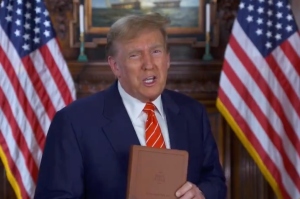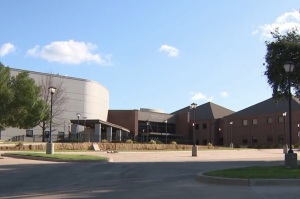Is student debt forgiveness justice, or a bribe?
Biden’s recent executive order to forgive up to $20,000 of student debt per person has a nation divided, with the debate cutting across party lines. At the heart of the issue is this fundamental question: “Is student debt forgiveness justice, or a bribe?” Does student debt forgiveness bring about justice by righting some wrong? Or is it a thinly veiled bribe to attract votes in an election year from the 43.4 million unduplicated borrowers who would directly benefit from Biden’s executive order?
The question of justice in the payment of student debt has serious implications for our nation as a whole. Proverbs 29:4 warns, “By justice a king gives a country stability, but those who are greedy for bribes tear it down.” Will student debt forgiveness bring much needed stability to our divided country, or will it tear us apart?
Regardless of where you stand on student debt forgiveness, there is no question that student debt, by virtue of its sheer enormity, has exploded into a national crisis. To put the magnitude of student debt into perspective, federal student loans currently has a total balance of $1.6 trillion—an amount roughly equivalent to the $1.66 trillion in net income taxes collected for all of 2021 by the IRS. (According to the IRS Data Book Full Publication 2021, net taxes equaled $1.66 trillion, with $1.29 trillion collected from individual and estate and trust income taxes, and $0.37 trillion collected from Corporations and tax-exempt organizations.)
Outstanding federal student loans are twice the size of all credit card debt—second only to mortgage debt among all U.S. debt categories. But unlike a mortgage, student debt doesn’t come with a roof over your head.
Worse yet, unlike any of the other debt categories, student debt cannot be expunged through bankruptcy. This exception started out as a simple pragmatic matter, because no one would lend money to a person who, more likely than not, was straight out of high school and had no income or collateral. How much less so if that person could simply declare bankruptcy upon graduation, leaving the lender to foot the bill?
So while there is no doubt that student debt is a huge problem, until recently there has never been a question as to who should pay the bill. The borrower is responsible for their debt, often times to their great peril. Solomon’s warning, “the borrower is slave to the lender,” has stood the test of time.
Until now. Biden’s current proposal targets Federal student loans exclusively, forgiving $10,000 per individual, increasing to $20,000 for Pell Grant recipients. And while there are income limits—$125,000 adjusted gross income for singles, or $250,000 for married couples filing jointly—95% of debt-holders meet these limits. Barring legal challenges (Katie Lobosco, CNN, 10/12/22, Judge hears case on whether Biden’s student loan forgiveness can move forward), the loan forgiveness program is set to go into effect in January 2023, when the multi-year freeze from the COVID-19 pandemic ends.
Is student debt forgiveness just? When it comes to justice—to determining what is right and fair—people generally argue for either equality or equity. Equity argues that everyone should receive an equal share of the rewards or costs, regardless of merit. Equality, on the other hand, argues that merit matters: outcomes are based on inputs. For example, more pay for more work.
Clearly student debt forgiveness does not treat everyone equally. Those who benefit from student debt forgiveness must have:
- gone to college
- borrowed money from a federal loan program, and
- have left unpaid student debt outstanding.
Those who do not benefit are the opposite: those who
- have not gone to college
- not borrowed money from a federal loan program, or
- have not left unpaid student debt outstanding.
In the case of Biden’s debt forgiveness program, people are not only treated unequally, it is as if the opposite of merit matters. Indeed, the greatest disparity is born by either those less fortunate, in that they did not go to college, or those who accepted the responsibility of paying for the cost of their college education.
Despite not meeting any standard of justice, Biden’s executive order for student debt forgiveness has a passionate following. I met several of them last week at an accounting research conference in the Pacific Northwest, where a handful of vocal accounting faculty among 10 attending universities shouted down my critique of the executive order's injustice. These faculty favored equity: one focused on equal outcomes over equal opportunity. To this unruly mob, the only acceptable solution was the equal outcome of no student debt for anyone. Only by forgiving all student debt could we have true equality. If only they did a little digging, they would find that even Karl Marx rejected the idea of equal outcomes, recognizing it to be a death knell even to communism, because no one would be incentivized to work.
Favoring equal outcomes in lieu of equal opportunity fails the norms of distributive justice. So if Biden’s loan forgiveness order is not just, what is it? Is it a bribe? And if it is a bribe, how should Christians respond?
In the proverb above, it is noteworthy that it is the recipient, not the giver, of the bribe who tears their country apart. It is “those who are greedy for bribes” that tear it down (Proverb 29:4).
God warns us, “Do not accept a bribe, for a bribe blinds those who see and twists the words of the innocent.” (Exodus 23:8) It is the recipient of the bribe that is blinded.
As Christians, we must not be greedy for bribes, because they blind us to injustice.
I’ve lived through many financial crises, from the stock market bubble bursting to the Great Recession, and have found that when it comes to accepting responsibility, we have a penchant for blaming others, from our government to our President to the opposing political party. But it is we who need to accept the responsibility. After all, embedded in any democracy is the understanding that we are the government—“for the people, and by the people”—and it is we who need to curb our appetite for unjust payments.
In the United States, we’ve come to love our bribes, be it accepting payment after payment during the COVID-19 pandemic, or forgiving billions (even trillions!) in student debt. The result we're left with is exploding inflation—“too many dollars chasing too few goods”—unaware or uncaring that it is clearly the wake of the Titanic-sized checks we’ve written to ourselves, with no thought of repayment, that is devaluing our currency.
No number of Federal Reserve interest rate hikes can stem the rising influx of dollars. Because somebody always pays. The only question remaining is: will it be just?
John Thornton is the L.P. and Bobbi Leung Chair of Accounting Ethics at Azusa Pacific University, and author of Jesus’ Terrible Financial Advice: Flipping the Tables on Peace, Prosperity, and the Pursuit of Happiness.





























